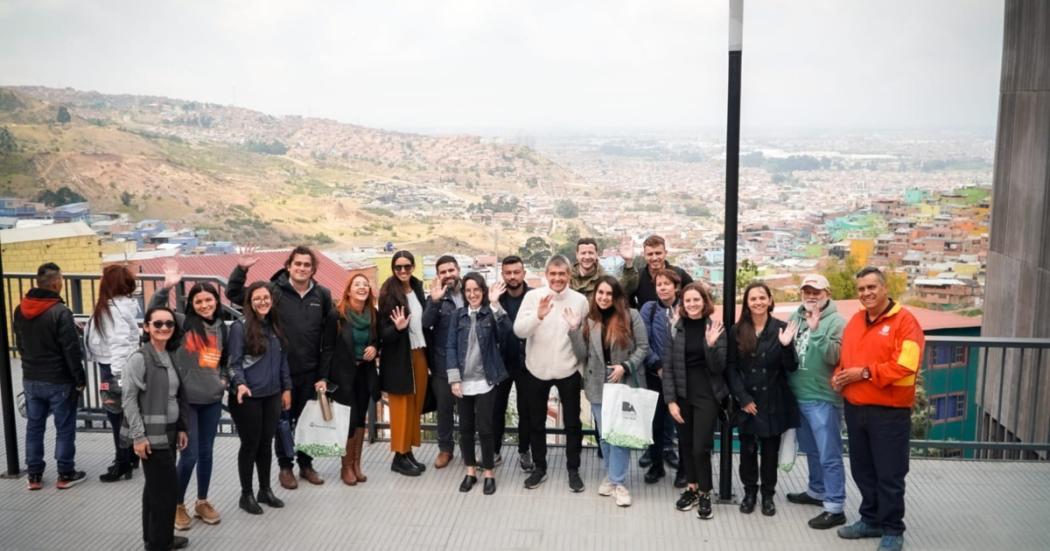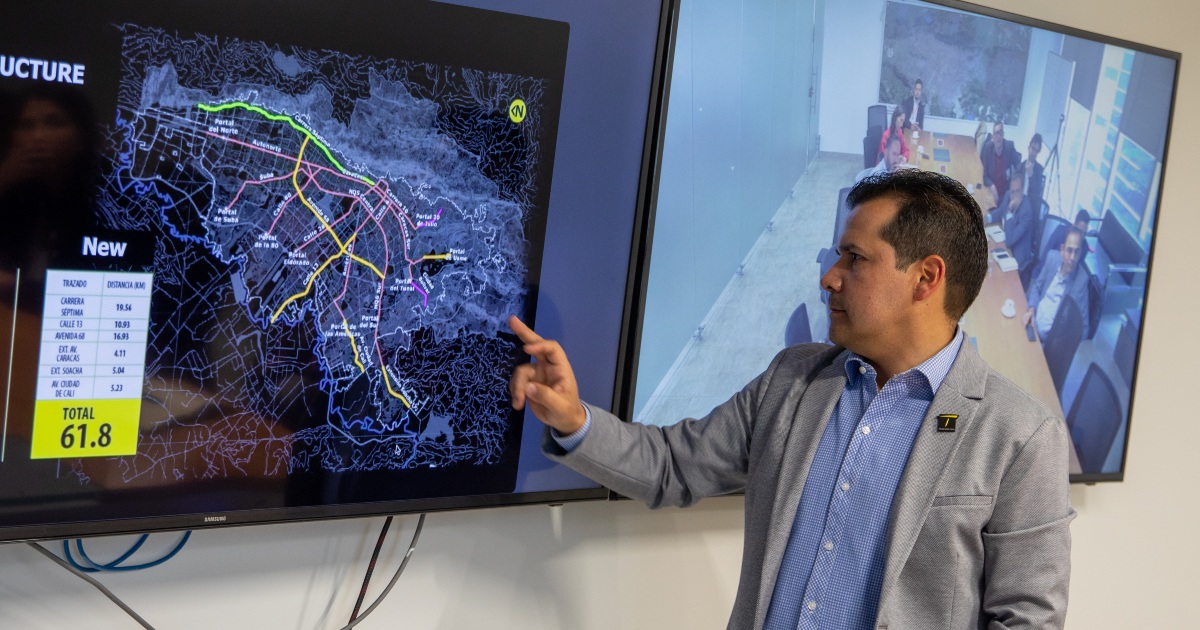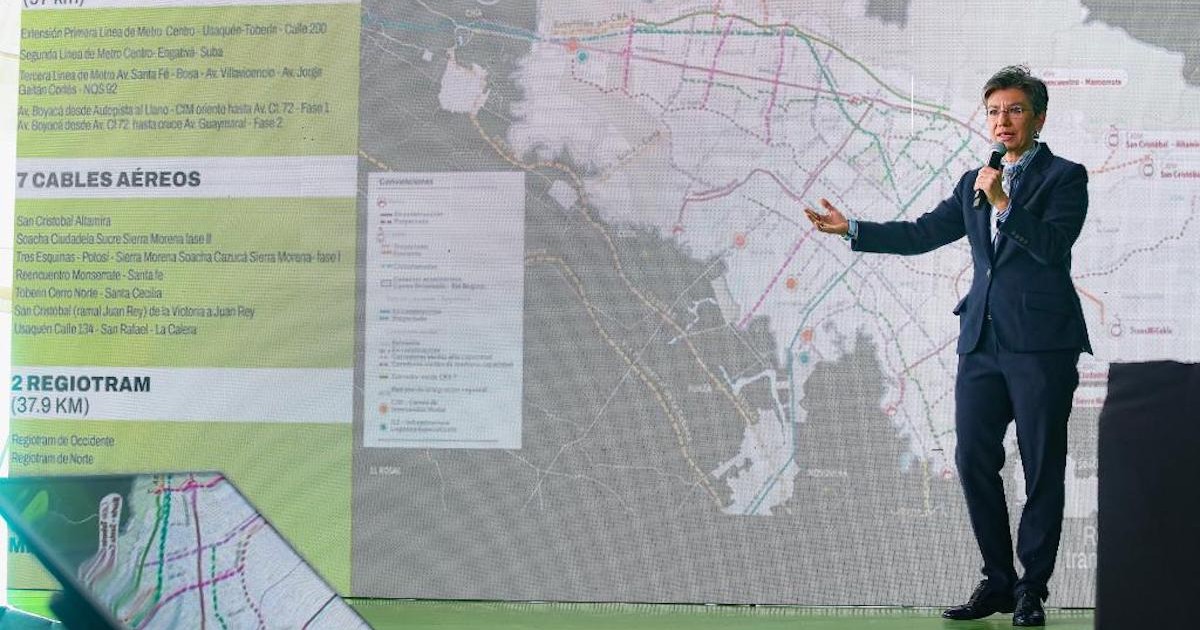Through a tour of the TransMiCable and the Manitas's Care Block located in the Ciudad Bolívar district, the government of the city of Buenos Aires and the Mayor's Office of Bogotá shared their experiences on active mobility solutions, regeneration of green areas, and urbanization of popular neighborhoods.
In this meeting, the Public Space Ombudsman of Bogotá presented the actions it is taking to defend the city's environment, including the new Public on Space Policy, instruments for the economic use of public space, and the Public Space Observatory, School, and Laboratory programs.
This event, made possible by the delegation of the Technical Cooperation Agreement between the French Development Agency, the government of the City of Buenos Aires, Argentina, and CODATU (Cooperation for urban mobility in the developing world), seeks to promote the exchange of good urban and mobility practices and to showcase the strategic projects promoted by the two cities.
The town of Ciudad de Bolivar, in Bogotá, hosted a delegation from the Government of the City of Buenos Aires, who visited as part of the Technical Cooperation Agreement signed between the French Development Agency, the Government of Buenos Aires, Argentina, and CODATU, with the aim of consolidating the exchange of good urban and mobility practices and learning about strategic projects in Bogotá in these areas.
The central themes of the day were based on explaining how both South American capitals are carrying out programs for the recovery and revitalization of public spaces through pedestrianization, the implementation of sustainable and active mobility projects in neighborhoods and representative sectors of both cities, and the urbanization of popular communities.
The Public Space Ombudsman's Office of Bogotá took this opportunity to share with its peers from Buenos Aires how they work to make the city's surroundings #APlaceLikeHome, through the economic use of public spaces tools such as Bogotá ‘A Cielo Abierto 2.0’ and the Special Districts of Improvement and Sectoral Organization DEMOS, the District Policy of Public Space, and the teams of the Public Space Observatory, Laboratory, and School.
"These meetings are very important because they show us that other cities have the same interests in public space and mobility. We have been able to see common points regarding greening cities, introducing new elements that help change mobility behaviors and with these changes generate new public spaces for encounter," said Armando Lozano, Deputy Director of Real Estate Management and (Acting) Director of the Public Space Defender's Office.
Here, a tweet from the Public Space Ombudsman's Office of Bogotá highlighting the visit of the Buenos Aires delegation:
#AEstaHora⏰Participamos del intercambio de conocimientos, prácticas urbanas y de movilidad entre los gobiernos de Buenos Aires y Bogotá, compartiendo nuestras experiencias sobre: mantenimiento, cuidado, defensa y aprovechamiento de los entornos de #UnLugarComoElHogar 🏡 pic.twitter.com/ebifiIvlfj
— Defensoría del Espacio Público (@DadepBogota) March 7, 2023
Representing Bogotá, the Secretariat of Mobility, Habitat, Women Affairs, and the Office for International Relations of Bogotá also participated in the day, while the Buenos Aires delegation included the Secretariat of Public Works and Transportation, the Ministry of Public Space and Urban Hygiene, and the Housing Institute of the City of Buenos Aires.
"This exchange is very enriching because although Bogotá and Buenos Aires are cities with very different configurations, there are many points in common. We are amazed by the enhancement of public spaces. We were particularly interested in the joint operation between the TransMiCable infrastructure, and how that is accompanied by the improvement of the spaces around the stations," said Cecilia Segal, director of the General Directorate of Urban Regeneration Projects of the Ministry of Public Space and Urban Hygiene of the government of the city of Buenos Aires.
During the activity, the delegations from both cities toured the TransMiCable system, which has managed to reduce segregation, bringing the community of Ciudad Bolivar closer to the rest of the city, and increasing access to the services offered by the capital.
Additionally, they visited Manitas's Care Block where they learned how Bogotá is a pioneer in Latin America in having a Care System that aims to provide assistance to women who work as caregivers to develop in education and entrepreneurship.








